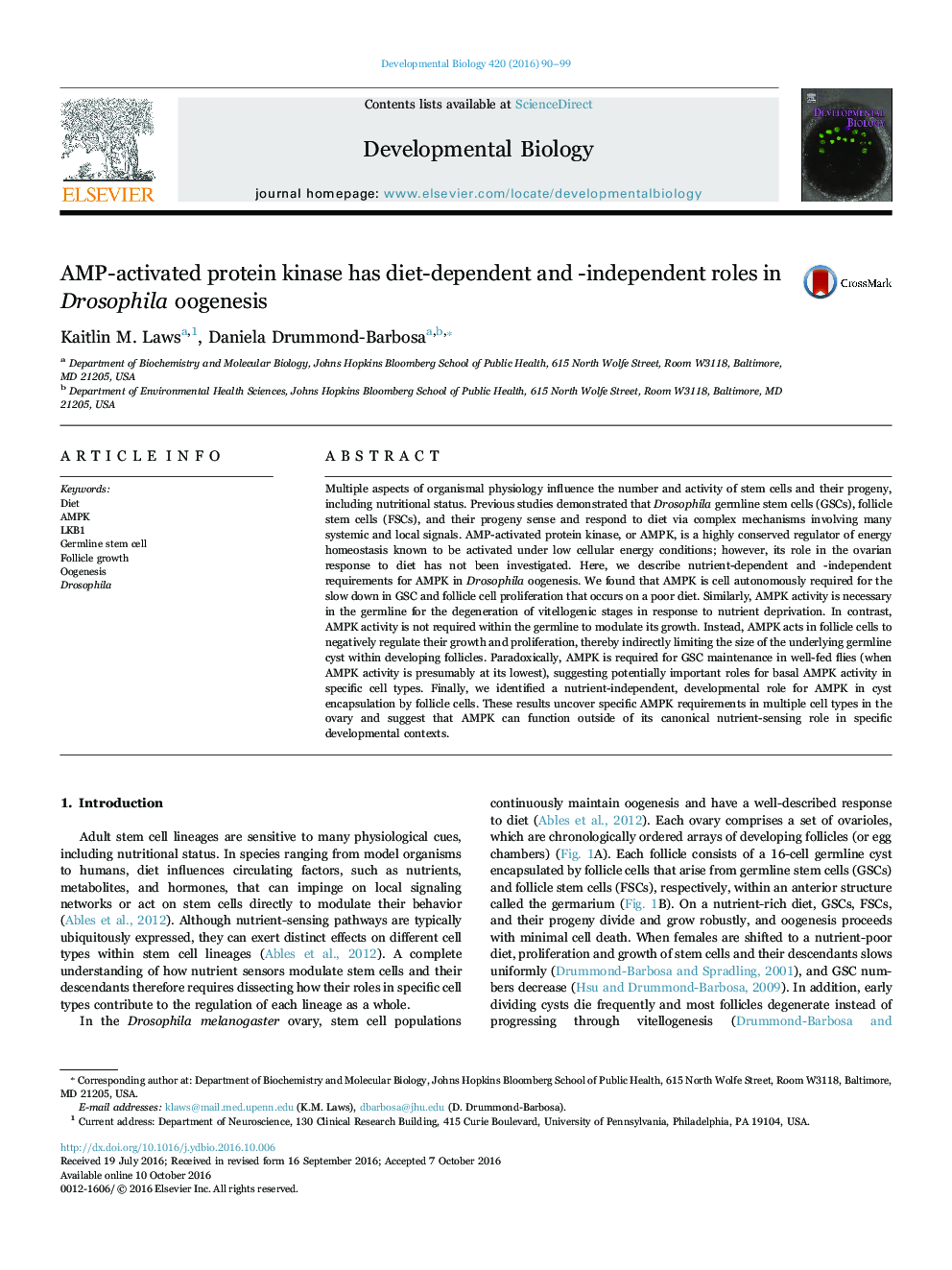| کد مقاله | کد نشریه | سال انتشار | مقاله انگلیسی | نسخه تمام متن |
|---|---|---|---|---|
| 5532041 | 1401827 | 2016 | 10 صفحه PDF | دانلود رایگان |

- AMPK restricts germline stem cell (GSC) proliferation on a poor diet.
- AMPK inhibits vitellogenesis on a poor diet, but does not control early cyst death.
- AMPK in follicle cells, but not in the germline, controls follicle growth.
- Basal AMPK activity promotes GSC maintenance on a rich diet.
- AMPK has a nutrient-independent, developmental role in follicle formation.
Multiple aspects of organismal physiology influence the number and activity of stem cells and their progeny, including nutritional status. Previous studies demonstrated that Drosophila germline stem cells (GSCs), follicle stem cells (FSCs), and their progeny sense and respond to diet via complex mechanisms involving many systemic and local signals. AMP-activated protein kinase, or AMPK, is a highly conserved regulator of energy homeostasis known to be activated under low cellular energy conditions; however, its role in the ovarian response to diet has not been investigated. Here, we describe nutrient-dependent and -independent requirements for AMPK in Drosophila oogenesis. We found that AMPK is cell autonomously required for the slow down in GSC and follicle cell proliferation that occurs on a poor diet. Similarly, AMPK activity is necessary in the germline for the degeneration of vitellogenic stages in response to nutrient deprivation. In contrast, AMPK activity is not required within the germline to modulate its growth. Instead, AMPK acts in follicle cells to negatively regulate their growth and proliferation, thereby indirectly limiting the size of the underlying germline cyst within developing follicles. Paradoxically, AMPK is required for GSC maintenance in well-fed flies (when AMPK activity is presumably at its lowest), suggesting potentially important roles for basal AMPK activity in specific cell types. Finally, we identified a nutrient-independent, developmental role for AMPK in cyst encapsulation by follicle cells. These results uncover specific AMPK requirements in multiple cell types in the ovary and suggest that AMPK can function outside of its canonical nutrient-sensing role in specific developmental contexts.
297
Journal: Developmental Biology - Volume 420, Issue 1, 1 December 2016, Pages 90-99